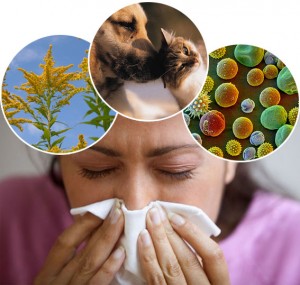Watery eyes, scratchy throat, angry rashes. From pesky annoyance to life threatening reaction: how many of us suffer from allergies? Health Canada says that non-food allergies have become chronic in people over the age of twelve. Over 65 million Americans have some sort of allergy, and in Europe over 87 million people struggle to control allergen sensitivities.
Controlling allergies is a big business, and because typical treatments only ease symptoms rather than eliminating the root cause, allergies continue to torment their victims. On the quest for a definitive cure, researchers are on the lookout for new data and permanent solutions.
Biotech Breakthrough in Finland
Historically, the pharmaceutical industry has aimed clinical research and drug development at merely controlling outbreaks and treating symptoms – at least until now. Using modern molecular biology and biotechnology, scientists at the University of Eastern Finland have discovered how to alter the genetic structure of the allergen molecule. As a result, they have engineered a vaccine that can prevent white blood cells from releasing histamine, which is what causes allergic flare-ups and debilitating symptoms.
The hope is that, after receiving the vaccine, patients will develop a natural immunity to the offending allergen. They will be free from recurring symptoms and from an endless dependence on conventional drug therapies. The new vaccine will run the gamut of pharmaceutical quality assurance measures, and should be available on the market within the next 5-7 years
Nature’s Cure: The Farm Effect
Rather than spending years conducting drug trials, and ensuring compliance with pharmaceutical quality control, innovative researchers are looking to nature for relief from allergic reactions. In other words, they are going directly to the source of many allergies to develop a better understanding of how humans interact with their environment. American allergist Mark Holbreich has been investigating why it is that, compared to their afflicted city-dwelling counterparts, Amish farmers suffer considerably less from allergies. In fact, his allergy tests on a group of Indiana Amish revealed them to be amongst the least allergic in the developed world.
Where has their immunity come from? Dr. Holbreich believes that through continuous exposure to microbes, from birth to adulthood and even inside the womb, farmers like the Amish maintain healthy immunities to a wide range of allergens. In particular, the consumption of unpasteurized milk seems to aid in bolstering the immune system. Scientists are now studying raw milk, looking for ways to preserve or extract its tolerance –boosting components. As an alternative to drug dependency, some researchers even suggest that city-dwellers spend time on farms in order to reduce their sensitivity to new allergens.
If it meant fewer allergic reactions, would you pass on conventional drugs therapies and move out to the country?




